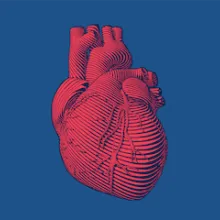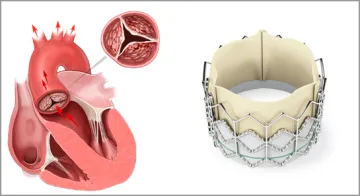Heart Transplants
A heart transplant is a major but common operation.

The procedure consists of replacing a patient's failing heart with a fully functional heart from a deceased donor. The procedure is usually a last resort; it is performed only after all medical options (including medication and lifestyle changes) have been exhausted in an effort to maximize the patient's own heart function. In those cases, a heart transplant may well be the best option; sometimes, it is the only way to save the patient's life. A transplant may not be the right answer for every patient, but our team provides a comprehensive evaluation that empowers patients with all of the options so they and their physician can determine the best option for their case.
What Sets Us Apart
- We have been performing heart transplants since 1977 and have given the gift of a new heart to more than 900 patients.
- We are experienced in multiple procedures, from heart transplants, combined heart-lung transplants, and the implantation of mechanical circulatory support devices for patients with rapidly progressing heart failure.
- Our 1-year patient survival rates post-transplant exceeds the national average.
- We take a multidisciplinary approach that includes a team of heart failure cardiologists, transplant and mechanical circulatory support cardiac surgeons, dedicated transplant coordinators, nurse practitioners, physician assistants, pharmacists, nutritionists, neuropsychologists, social workers, and support staff.
Transcatheter Aortic Valve Replacement (TAVR)

Banner University Medical Center at the University of Arizona is the first in Southern Arizona that has been approved to use the Transcatheter Aortic Valve Replacement (TAVR). The procedure is for patients with aortic valve stenosis who, for a variety of health reasons, are not candidates for other types of open-heart surgery.
Our Valve Clinic offers patients with heart valve disease optimal, specialized care, through a multi-disciplinary team approach. TAVR is our most recent innovation and complements other less invasive options, such as surgical robotics and catheter-based treatments that have already been established at our center for the treatment of aortic, mitral, and tricuspid valve diseases.
The procedure uses similar technology as a balloon angioplasty and coronary stenting procedure; the TAVR device collapses to a very small diameter (about the circumference of a pencil) and is crimped onto the balloon device. The cardiologist then positions the replacement valve inside the patient's natural aortic valve and inflates the balloon. This causes the new valve to expand, pushing the faulty one aside. The valve begins to function as soon as the balloon deflates, permitting immediate flow of blood to the heart.
Patients who are selected to receive a new TAVR heart valve can be confident the replacement valve will be implanted through a small incision near the femoral artery in the groin, eliminating the need for a large incision in the chest. TAVR is a less invasive procedure that contributes to a quicker recovery with substantially less pain than is typically associated with more invasive open-heart surgeries.
Make an Appointment:
If you are a physician who is interested in referring a patient, please contact the physician resource line at:
P: (520) 694-5868; F: (520) 694-2229
For patients wishing to inquire about adult cardiac surgery at Banner University Medical Center - Tucson, please contact us at:
P: (520) 626-7448

